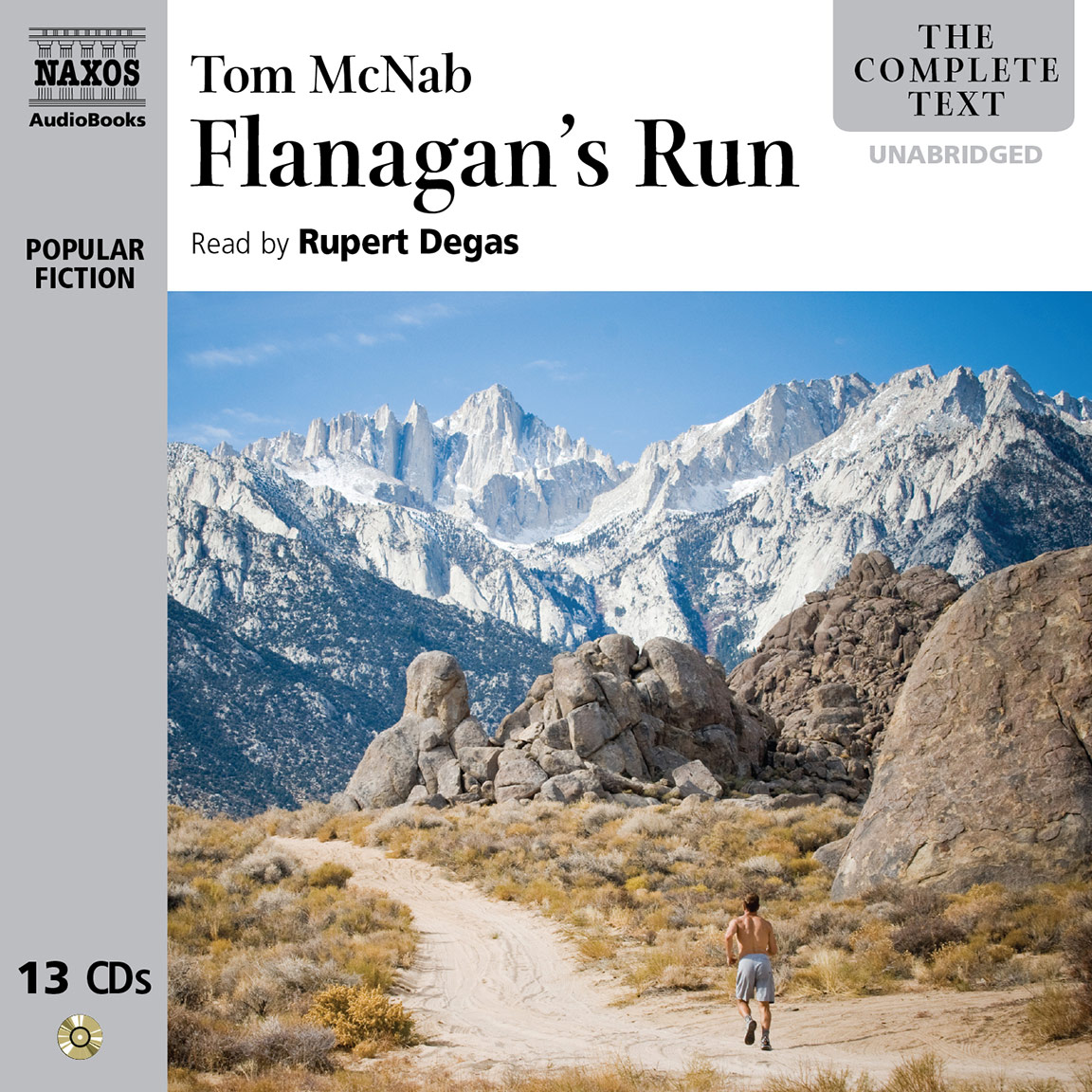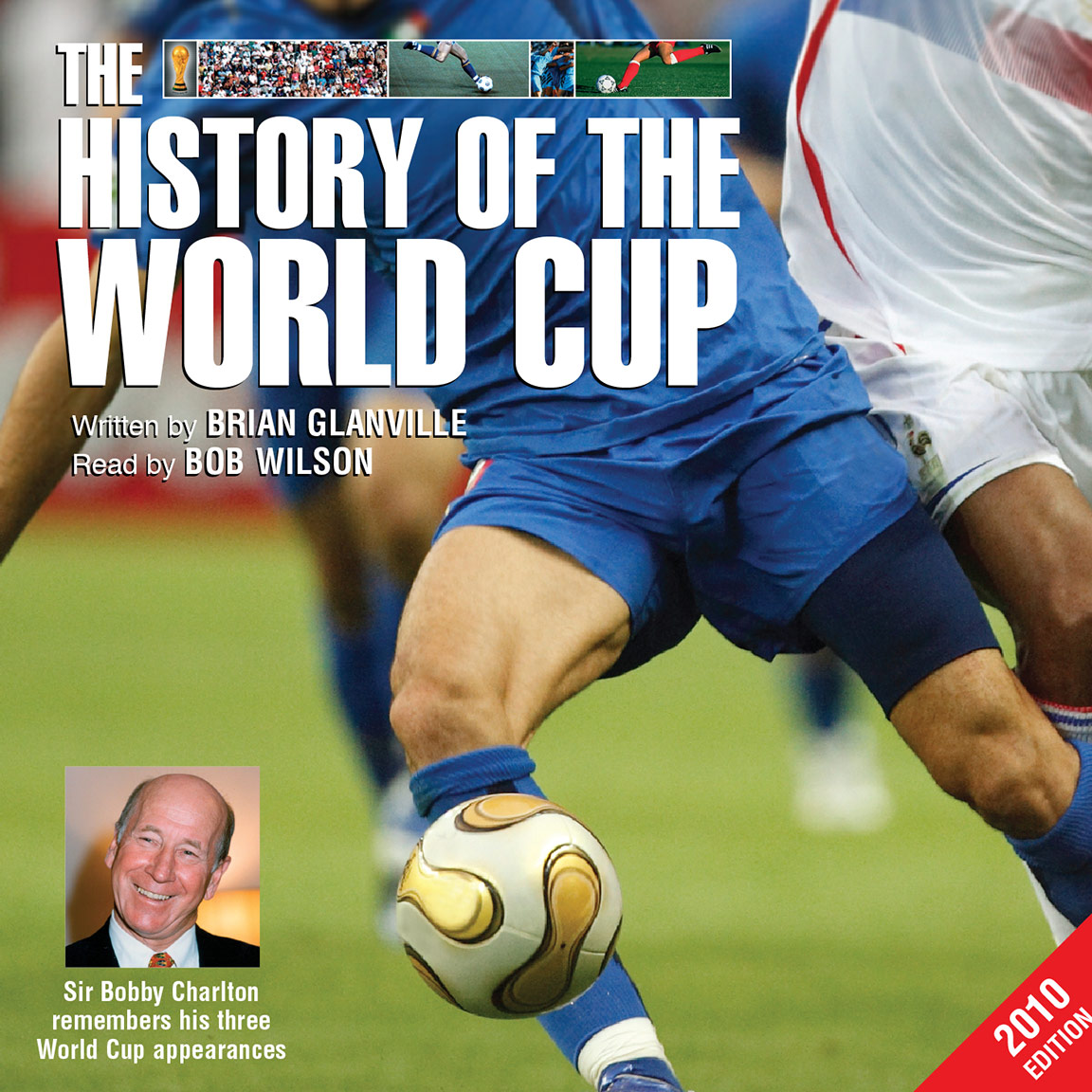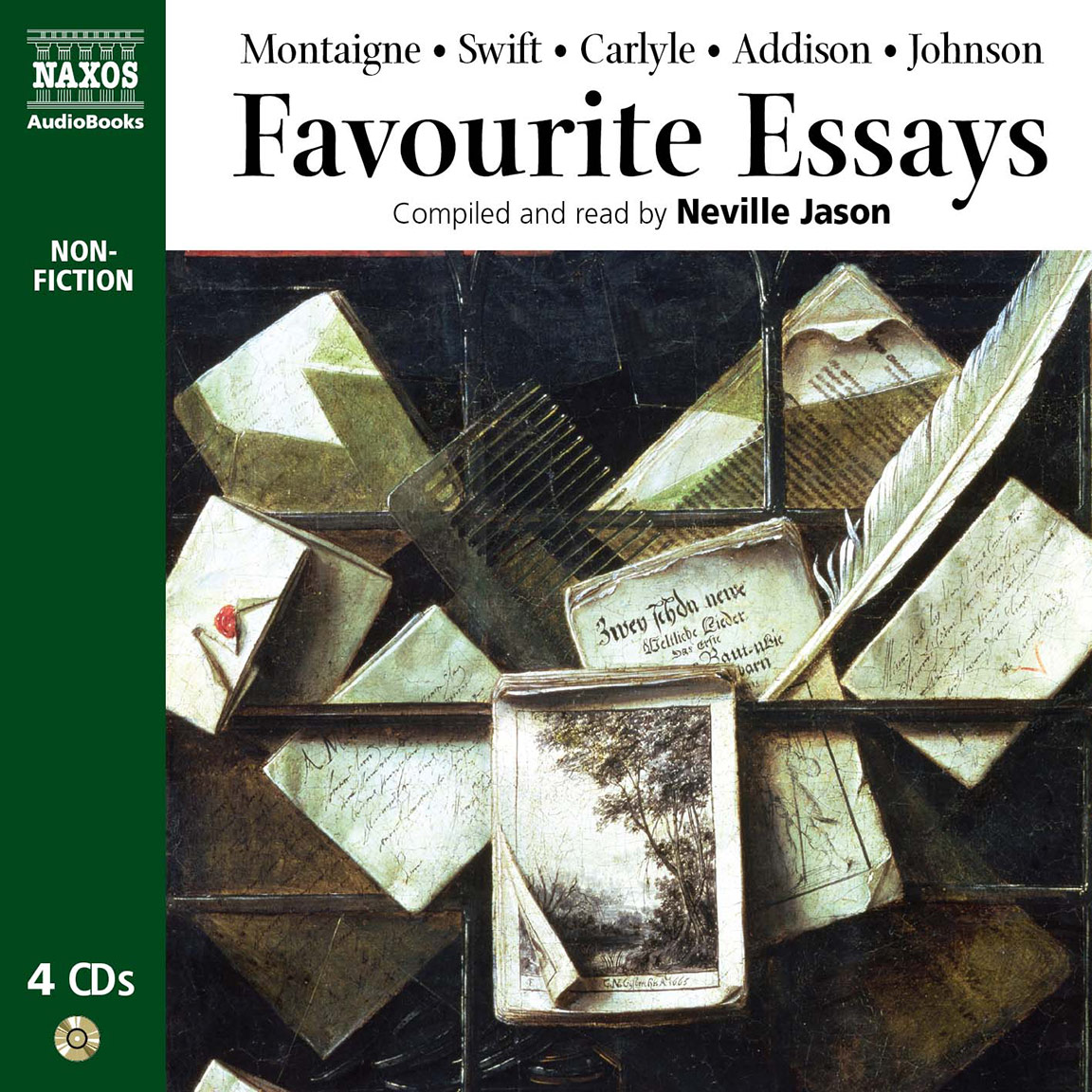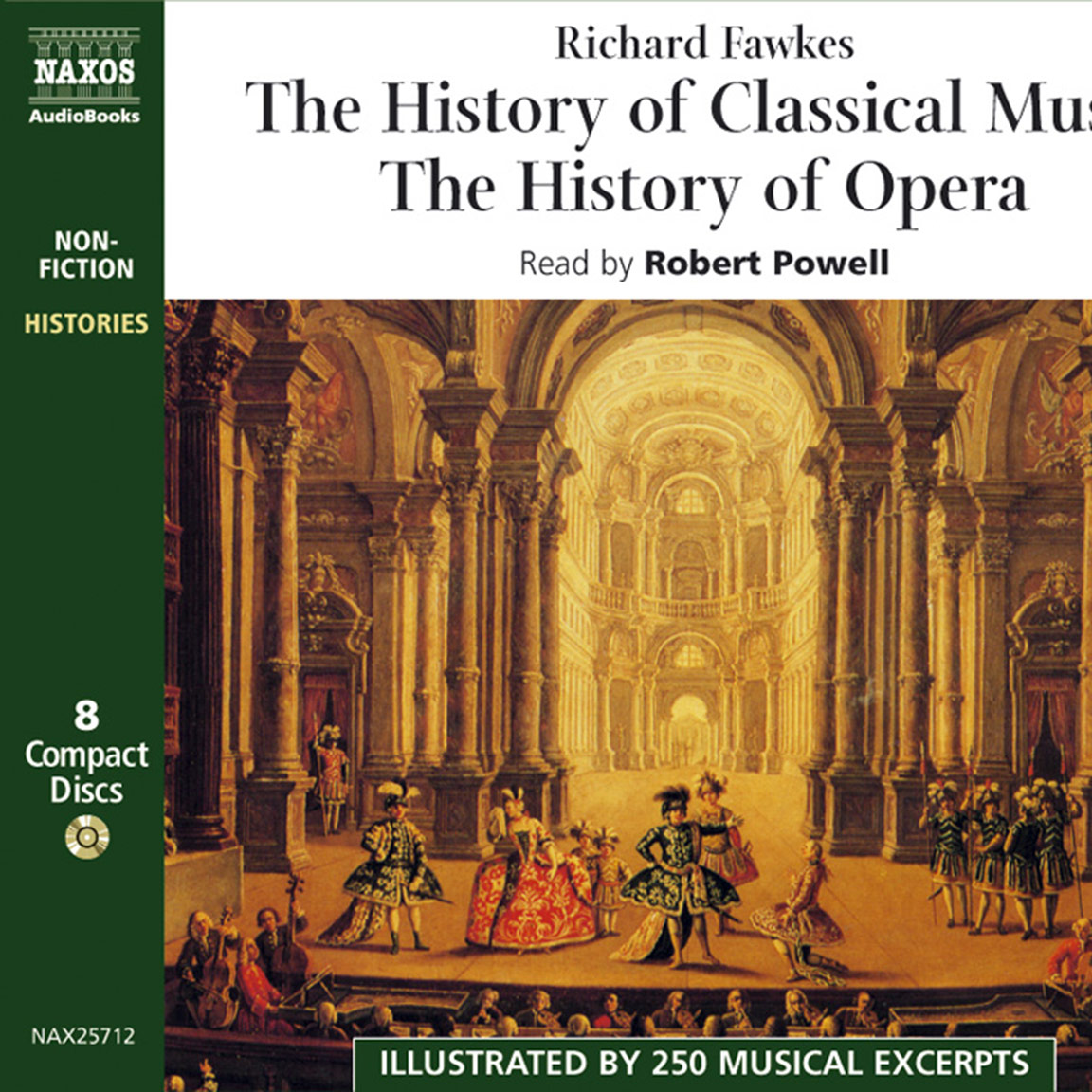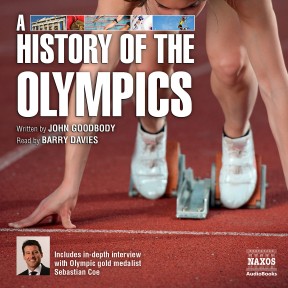
Audio Sample
John Goodbody
A History of the Olympics
Read by Barry Davies
unabridged
This unique audiobook history of the Olympics, first issued in 2008, has been updated to include the Beijing Olympics and released to coincide with the London event. Written by the prize-winning sports journalist John Goodbody, and with a fascinating personal documentary featuring one of Britain’s leading Olympians, Sebastian Coe, who is now heading the 2012 Games, this is an ideal opener!
-
6 CDs
Running Time: 6 h 41 m
More product details
ISBN: 978-1-84379-492-9 Digital ISBN: 978-1-84379-493-6 Cat. no.: NA0066 Download size: 98 MB BISAC: SPO019000 Released: March 2012 -
Buy on CD at Downpour.com↗Listen to this title at the Naxos Spoken Word Library↗
Due to copyright, this title is not currently available in your region.
You May Also Enjoy
Booklet Notes
A History of the Olympics
Some Favourite Olympic Moments
by Barry Davies, and John Goodbody
The Beijing Olympic Games will be my eleventh as a television commentator. All but the first, the Mexico Games in 1968 when I was employed by Independent Television, have been with the BBC. In all except Moscow in 1980 my commentaries have been on site. Then, the governing bodies of the sports on which I was due to commentate responded positively to the demand of the Prime Minister Margaret Thatcher that Britain should follow the lead of the United States President Jimmy Carter and boycott the Games, because Soviet troops were occupying Afghanistan.
Happily, not everyone felt the need to employ sportsmen and women as some sort of front line, leaving Sebastian Coe, Steve Ovett and company to compete in Moscow, and me to work as the standby commentator in London, in case the far from reliable sound circuit of the time broke down. As a result, I was prepared for just about anything, with better immediate knowledge of what was happening than at any Games either before or since.
Many of the moments I most recall are included in this history of the Modern Games. Some I saw; most I viewed only after they had taken place – frustrating but inevitable with so much sport happening at the same time. In all I have commentated on over a third of the twenty-eight different sports, though only briefly on athletics, when I covered the start of the marathon in Mexico City live into ITN’s News at Ten. As a foreword to your listening I offer some thoughts on what the Olympic Games mean to me, and three memories of the days when ‘I was there.’
The Sognam Stadium in Seoul in 1988 housed my happiest memory – Great Britain’s victory over West Germany in the final of the hockey tournament. It was, as the team’s coach David Whitaker put it, ‘a moment encapsulated in my life which will never disappear’. Paul Barber, a staunch defender and a fearsome striker of penalty corners, spoke of the greater satisfaction of being successful as a part-time sportsman (a somewhat old fashioned thought even then), but the fact that victory was gained by the professional approach of a team of amateurs added to its endearing charm.
In the demands made on gymnasts in countries behind the iron curtain, two teenagers – Elena Shushunova of the Soviet Union and Daniela Silivas of Romania – were professional in all but name. In Seoul they produced arguably the most intense head to head competition of any sport in the Games; a drama of expressions off and expertise on the four pieces of apparatus, in a battle to win the All-Around title. The faces of agony and ecstasy as Shushunova, the last to perform, vaulted to victory by 0.025 of a mark have remained in my sporting portrait gallery.
The victory four years later, in the Games in Barcelona, of a lass from a small village in Western Java was rather more clear-cut. A Roman Catholic from the world’s biggest Muslim country, Susi Susanti became the first Indonesian to win an Olympic gold medal; and in a sport – badminton – that her country adores with a passion which has to be seen to be believed. Sitting in the commentary position alongside Craig Reedie, the chairman of the British Olympic Association and a member of the International Olympic Committee, who had striven to bring badminton to the Games, I saw clearly what the victory meant to her and to those in the audience from her country. Even the General who was the president of their badminton federation was awash with tears. When Susanti returned home with her then boyfriend, Budi Kusuma, who the next day won the men’s title, a million people turned out in Jakarta to greet them.
My visits to the main Olympic stadia, other than as a spectator, have been to commentate on the men’s football final and the ceremonies. The former usually offers up a name or two who will go on to make the headlines – Romario, who scored seven goals in ’88, and Carlos Tevez, the scorer of eight last time in Athens, being two examples. The ceremonies produce the biggest television audiences of the Games, and give the commentator the most homework. More often than not they are at least one act and one specially-written song too long, but they are an integral part of the Olympic family get-together as each host city presents its history, its culture and its children – their past, present and future – built around the parade of the athletes taking part. While those competing on the opening day rarely take part, the experience for those who do offers a lifetime memory; gilt-edged if given the honour of carrying their nation’s flag.
The entry of the Olympic flag, its interlocking rings on a plain, white background representing the five continents of the world joined in peace, excellence and sport is for me the most moving part of the protocol; its raising to the strains of the Olympic hymn, composed by Spiros Samaras, bringing a tingling feeling of inspiration. The electric atmosphere has caused many an oath-taker to succumb to nerves and forget his words. In Sydney the chosen judge failed to commit his colleagues to ‘complete impartiality’. Most people would probably choose the final lighting of the Olympic cauldron which, leaving to one side the desperate moments of waiting endured by Cathy Freeman in the Millenium Games, was for me far more dramatic when just a single runner carried the torch around the stadium.
In its darkest hour – the Munich tragedy in 1972 in which eleven Israeli athletes lost their lives at the hands of the Black September group of Palestinian origin – the Olympic ideal could be viewed as a source of hope in an uncomprehending world. In spite of all humanity’s imperfections, including those of its own members, I believe it remains so.
I trust you will enjoy John Goodbody’s History of the Olympics.
Barry Davies
No sports event provides such a kaleidoscope of contrasting memories as the Olympic Games: the tiny gymnasts juxtaposed with the superheavyweight weightlift- ers; the speed of the sprinters with the endurance of the long-distance runners; the dexterity of the footballers and basketball players with the unremitting power of the wrestlers and judo fighters. Men and women, large and small: all have their place in the Games.
For anyone with a wide-ranging interest in sport, attending the Games can be a frustrating experience: one is able to see only a fraction of the events, almost all of which feature the world’s most outstanding athletes. As it is, by devoting oneself to watching as many of the events as possible, one suffers a type of mental and physical indigestion at the end of the seventeen days. It takes me several weeks to recover from this feeling of being sated with observing excellence.
I have reported on every Olympics, mainly for British newspapers, since 1968 and I am often asked which was my favourite. I find this difficult to answer. So much is bound up with the success of one’s own work, and affected by the conditions of that work and by the performances of the competitors, especially those in the British team. Sydney and Barcelona are always held up by the British media as their favourite Games of the last forty years; but in the case of Sydney, in particular, this was because of the (partly unexpected) hoard of medals won by the British team. Probably the most adversely criticised Games during this period was Atlanta; but this was influ- enced by the fact that Britain only got one gold medal – it is always more rewarding to write about victories than trying to explain defeats, however narrow the latter may have been – while many journalists (although not me) had vexing experiences with the transport and communications in 1996.
Both Moscow and Los Angeles were spoilt by the boycotts: the 1980 Games seemed grey and sombre, while 1984 was too garish (not surprising given its proxim- ity to Hollywood). Neither was satisfactory. Munich was certainly the most dramatic, largely because of the killing of the Israeli athletes by Palestinian guerrillas, but also because of other, highly publicised, events and personalities.
I have fond memories of all the ten Summer Olympics that I have covered, although naturally of some more than others. My appreciation has also been influ- enced by my proximity to some of the competitors, whose careers usually climax at the Games. Like Barry Davies, I have selected three special occasions, all of which have been chosen because of the rapport which I, as a journalist, had established to a lesser or greater extent with the individuals concerned.
Chronologically, the first occasion was in Moscow in 1980. Twelve years earlier I had beaten (with considerable difficulty) a fifteen-year-old schoolboy in the London Area Judo Trials. This was Angelo Parisi, already more than 100 kilos, much of it across the chest, shoulders and width of his thighs. Holding him down was like lying on an earthquake. It was the only time I was to beat him; for several years, he used to hurl me round the Budokwai club in South Kensington, where we were both mem- bers. Although living in London, he held Italian nationality; but he switched to British citizenship, winning two European junior and two senior titles and an Olympic bronze medal by the age of 19. He then married a French girl and changed nationality again. When I went to work in Paris in 1978, Angelo was an established member of the French squad and again we saw much of each other. In Moscow he was picked for the heavyweight category, although he was light for the division. In the final he met Dimitar Zaprianov of Bulgaria. Angelo was losing with forty-five seconds left when he produced one of his textbook throws, uprooting his hapless opponent with a move- ment in which he got underneath Zaprianov and threw him over his back, falling on top of him with the effort. As the two men landed, the mat visibly bounced and the crowd rose to its feet in appreciation of a spectacular winning throw. As Angelo said to me afterwards: ‘Je l’ai baisé’, which roughly translated is ‘I screwed him’. Indeed he did.
Four years later in Los Angeles, Seb Coe achieved successive Olympic victories in the 1,500 metres, something that no one had ever done before him. Recovering from illness, he had missed the key international races of the 1983 season, and there were doubts about whether he would ever recover his former eminence. I saw Seb win the Middlesex 800 metres title in Enfield in May 1984, and he was obviously making remarkable progress; but to retain his Olympic 1,500 metres would demand much from him, especially as his opponents included his compatriots Steve Ovett and Steve Cram – the World, European and Commonwealth champion. After finishing second in the 800 metres in Los Angeles, he was nicely placed in the back straight of the final of the 1,500 metres, following the pace of the Spaniard José Manuel Abascal. When Cram moved up to Seb’s shoulder, the defending champion took off. Although Cram followed him, Coe had a lead of more than a metre as they entered the home straight. One waited for Cram’s acceleration. It never came. Instead it was Seb who broke away, crossing the line as a clear winner. He then wheeled round towards the press box, his index finger outstretched, shouting: ‘Who says I’m finished?’ Underneath his amiable demeanour was the will of the champion that he was.
Fast-forward now to 2000 and a Saturday morning at the rowing course in Sydney. Steve Redgrave was attempting to be the first person in an endurance event ever to win gold medals in five successive Games. After their victories in Olympics and world championships in the coxless pairs, Redgrave and his partner Matthew Pinsent moved into a coxless four in 1997 and promptly won three more world titles, despite Steve himself being forced to take insulin for diabetes. However, in June 2000, the four only finished fourth at the Lucerne regatta. Under the guidance of their coach Jürgen Gröbler, they regrouped and came back fighting. At the final in Sydney, with Pinsent at stroke, they led from the start. It was only in the last 200 metres that the Britons were really worried, when the Italian crew began a charge for the line. The Italians got closer and closer but the British four held on and crossed the finish 0.48 seconds ahead. Then, in a typical gesture of comradeship, Matthew clambered over their crewmate Tim Foster and embraced Redgrave before tumbling into the Penrith Lake. All the while, I was desperately writing a few new paragraphs to my story to catch the last edition of The Times in London. I hardly had time to savour the victory. But I have had time subsequently.
Barely a month goes by when I don’t recall at least one of these three memories, and for much of the rest of the time I am thinking of other occasions I have witnessed at the world’s greatest sports event.
John Goodbody
Behind the Scenes of A History of the Olympics
The story behind this recording goes back to the 1984 Olympics and even further. A keen judoka myself, I had started going to the Budokwai, London’s premier judo club in 1982, shortly after Neil Adams won his world light middleweight title (Maastricht, 1981) with a spectacular armlock. I was practising one evening at the club, and I was approached by John Goodbody, a long-standing Budokwai member and a leading ‘Fleet Street’ sports journalist. He had heard I was a classical music journalist and asked if I was interested in turning my hand to judo writing as well – the sport was in need of reporters who understood this rather specialist combat form.
That was the start of a new career for me which ran parallel to music writing. For nearly 25 years I toured the world practising judo, and writing about it for a variety of newspapers, magazines as well as reporting for radio and TV.
I started writing for The Times and other UK newspapers, and in 1984 was invited by BBC TV to be the judo advisor at the Los Angeles Olympics in 1984. The commentator I was to work with was Barry Davies, coincidentally, a friend of John’s.
So, it was fitting that, more than two decades later, when John proposed a history of the Olympics for Naxos AudioBooks, we should ask Barry to read it.
It became a bit of a special project for the three of us. John produced an extremely entertaining and informative script, and Barry’s reading was infused with the direct experience of many Olympics – they have both been to every event since Mexico.
The box set has been enhanced by Sebastian Coe’s interview. To have one of the greatest Olympians of all time, who just happens to be in charge of the London 2012 Olympics, is more than an added benefit. It was helped, perhaps, by the fact that, (though a little-known fact) Sebastian Coe had practised judo at the Budokwai, with William Hague, when the latter was shadow Prime Minister.
But that recording was not without its memories. Barry, our engineer Malcolm Blackmoor and myself turned up at Lord Coe’s offices on the 20th floor in a glass tower block by Canary Wharf having been assured that there was a quiet room in which we could record the interview. Lord Coe, understandably, was too busy to come into a studio.
The offices looked over the area of East London where part of the London Olympics will be staged – you could see the building work going on far below, and, just by the window, one of those massive cranes, standing idle.
We set up the recording with microphones in front of Lord Coe and Barry Davies (who was asking the questions), and, with silence all around, we started. We had forty-five minutes before Lord Coe had to leave for the Houses of Parliament to face some rigorous questioning about the rising costs of the London Olympics. That didn’t phase him – having won two Olympic gold medals in successive events and outrun the powerhouse that was Steve Ovett, he probably enjoys the challenge of facing MPs.
He began to tell his story and, on cue, the massive crane swung into action, its job on that day being to move clanking metal sheets from one area to another. The cranking and creaking was disastrous.
Malcolm looked up at me from his digital recording machine with a despairing look. I knew we wouldn’t have another chance and said to al blithely: ‘don’t worry… we can get rid of all the metallic interference later’.
Having had some experience of working with historical recordings and excising pops and clicks, I thought we could do something. But I did go rather pale when I returned to our offices and heard the crashing amount of metallic noise as Seb was telling his story.
Off I went with recording in hand to K&A, the Naxos editing suite in Potters Bar, Hertfordshire, and told restoration engineer Andrew Lang that I had something that would test his mettle.
And, amazingly, with the help of Cedar software, he performed nothing short of a miracle.
So – I hope you enjoy A History of the Olympics, with its amazing stories of human endeavour, and all the upheavals that have taken place over the years; and I also hope you enjoy the story of one man, one rather special man, who has helped to create that history.
Nicolas Soames
